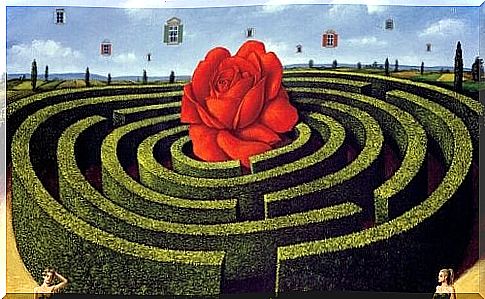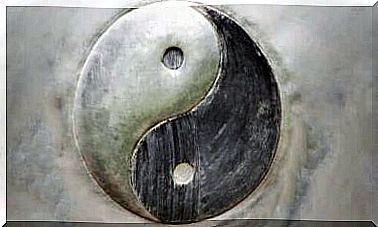I Don’t Want You To Be Worth It, I Want You To Be Worth The Time, The Laughs, The Dreams

I love these people who are more than worth it. I am referring here to those who are worth the joy and the shared time, the echo of laughter and even the sadness unveiled and blurred. I love those who inspire me, who whisper to me quietly that life is still a beautiful place because as long as there is someone with whom to enjoy it, there will be hope.
In truth, seeing our daily life through the prism of positivity is a real help. We live in complex times that drag us into a profound shift in consciousness. This is something that, to many, we often get the impression of: it is as if values like social equality and sensitivity towards our fellow human beings are empty and almost obsolete abstractions in the face of the pressure of money. and a superstructure that moves its sons relentlessly.
“Anything worth doing deserves our hard work and attention.”
-Ray Kroc-
In these times of collapse, old codes are gaining more importance than ever. The ones that are based on connecting people, where we can shift our attention to those simpler, purer, more atomic things that are really worth it, like love or friendship. Because in the end, it’s through the smallest things that we generate the biggest changes, those that start with a small gesture and lead to upheaval.
Today, no one wants to waste time with the things that hurt or with what extinguishes our laughter or our hopes. We want people who enlighten us, we want open windows and barrier-free paths. We want to be convinced that creating a better world will always be possible if there is a common will.

Saddened societies and the search for happiness
Happiness as a constitutional right is an aspect that appears in various major charters. In the United States Declaration of Independence of 1776, for example, Thomas Jefferson, John Adams, and Benjamin Franklin framed in the preamble the right of everyone to seek and build their happiness. Japan, South Korea and, more recently, Brazil, have included this aspect which, more than a simple entelechy, deals with the most worthy respect to which the human being can aspire.
“Happiness doesn’t come with big luck, but with little things that happen every day.”
-Benjamin Franklin-
Socrates also reminded his students that the ultimate goal of all people is happiness. To achieve it, according to the sage of Athens, we should “invest” in virtue and set ourselves more by example. Buddhism, on the other hand, speaks to us about mental balance and this detachment from material goods. All these pillars, as ironic as it sounds, are moving away a lot from our Western societies, always busy raising the rates of the GDP, by completely neglecting a population which does not know how to be happy and which, if it knows the recipe for happiness, is unable to turn it into reality.
We have given way to a world which, for many, is not worth the joy but the deepest pain. Moreover, the World Happiness Report which is written each year reveals something to us that should make us think: the most advanced countries in terms of technology and which have a higher GDP are not the happiest. In contrast, those cultures centered on family or friendship relationships are those which acquire a more dignified, fuller and more satisfying level of emotional well-being.

Creating a world that is worth the hope and not the pain is not a day’s work. This is meticulous work that requires, above all, a shift in consciousness starting from the smallest spheres. Starting from ourselves. We know that states do not see happiness as a primary goal, that attention to emotions and the quality of individual well-being has been shifted for the “well-being” of the numbers and numbers that guide our cycles. of calm and crisis.
“When we share, we succeed in expanding our capacity to be happy”
-Tibetan proverb-
Therefore, it is essential that we begin to open these internal windows whose rust from an environment, sometimes not helping much, has become encrusted over time. It is time to take care of our internal universe to make this world worth the joy, the laughter… and the life .

Some keys for change
It may seem obvious, but something as simple as giving more importance to happiness and inner balance can be the best key to change. Applying a filter with this “trademark” on a daily basis can help us:
- Surround yourself with people who bring you well-being, who motivate you, who allow you to be yourself at all times. On the other side of this filter, we will leave those that only bring you worries, squalls and storms.
- Happiness is, above all, the absence of fear. Maybe it’s time to rationalize our fears, bring them out into the light of day, and transform them. At the other end of this invisible filter that we talked about before, we must let go of the paralyzing fears that lock us in our comfort zone.
- It is also time to deepen the meaning of “crisis”. For the Greeks, “crisis” was nothing more than a moment subject to evolution. We experience uncertainty but, at the same time, it is a time of precious opportunity in which humans have always been able to offer the best of themselves through resilience. and creativity. These are vital moments when abandonment has no place.
According to Sonja Lyubomirsky, better known as the scientist of positive emotions, about 50% of our happiness is under our control. The remaining 50% depends on the events that occur and even some biological factors. It is an acceptable probability . It is a wonderful starting point from which we can make our daily lives worth the joy, dreams and well-being.
Images by Rafal Oblinski








